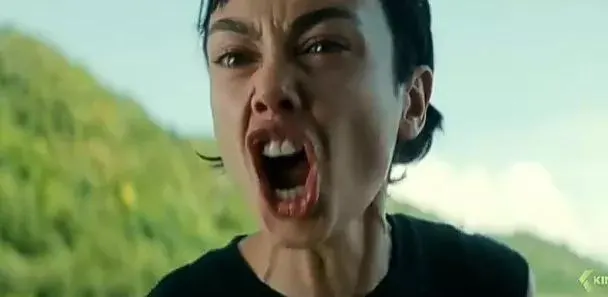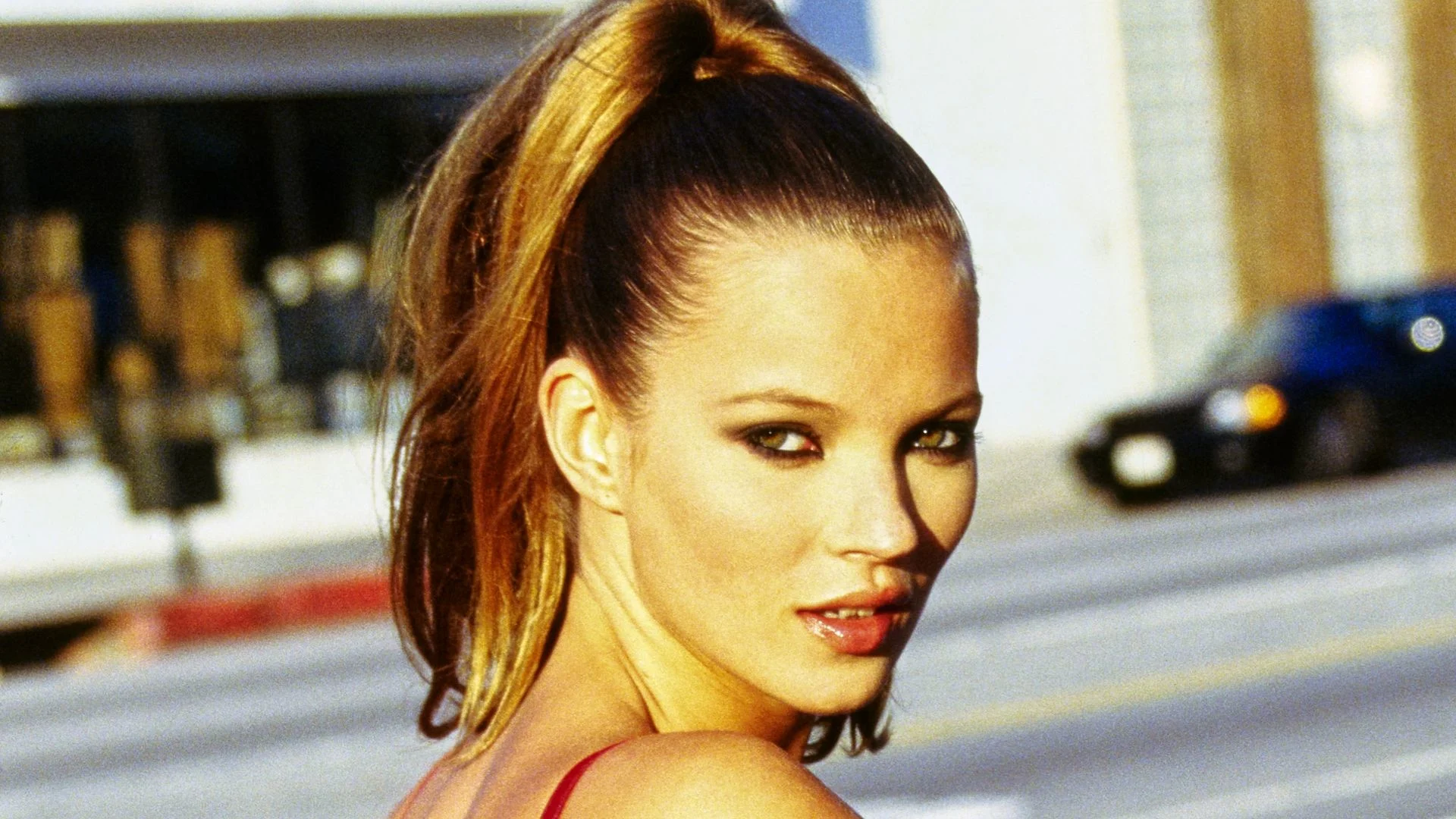By Erik Kain,Senior Contributor
Copyright forbes

Alien: Earth
Credit: Hulu
The main problem with Alien: Earth, in its first seven episodes, is the idiot ball, which I explained in my previous post about the Hulu series. Nearly every character is incredibly stupid, or at least makes constantly stupid choices at every turn. This extends to the factions and organizations involved. The show probably ought to have been called Alien: Security Breach, but of course in order to actually breach security, you’d need some there in the first place. Spoilers ahead.
On the USCSS Maginot, in Episode 5, almost every character, in nearly every situation, took a turn carrying the idiot ball, including a trained scientist eating her lunch in a biolab and then failing to secure two alien containers. The only reason for this incessant stupidity? To drive the plot forward. Fans of the show excused this and other bad character choices by saying something like: “This crew isn’t the cream of the crop. Nobody goes on a 65-year space mission unless they’re desperate.” You can’t expect people on an important space voyage to actually be smart!
This misunderstands human nature entirely. Humanity has always had its adventurers and trailblazers, people who would go seek out “The New World” on voyages that could take months, and expeditions that could take years or even entire lifetimes, risking life and limb. These people were not the bottom of the barrel. In a future with space travel, scientists and explorers would compete to go to space, even if it meant leaving loved ones behind. They would train rigorously for the honor. Only the best of the best would be sent on a crucial mission to retrieve dangerous alien species and bring them back to Earth.
I have a question: If these scientists and engineers and the rest of the crew were really just desperate, incompetent people (by design, in the script) how did they capture the aliens in the first place? Nothing about their actions after the fact lead me to believe they would have been able to secure dangerous Xenomorphs, deadly cockroaches, a super-intelligent eyeball alien and giant bugs that spew acid.
In Episode 6, one of the hybrid synths, who we are constantly told are super intelligent and super strong and overall better than their human and synth counterparts, awkwardly tries to put a tray of food inside the bug cell and, thanks to the eyeball-sheep’s quick thinking, is trapped in the cell and killed. You can excuse this by saying “He’s just a kid” but then I have to ask: What are the rules for these hybrids, exactly, wthin the fiction? Because some of them act like complete idiots, but Wendy is constantly outsmarting everyone. Are they super intelligent or are they just kids? The show never establishes any real parameters.
MORE FOR YOU
Wendy, of course, is the exception. She is the worst kind of tropey modern Hollywood writing in one implausible and obnoxious bundle. Wendy, unlike the other hybrids, is always one step ahead. She is the bravest. She is the strongest. She can speak the Xenomorph’s language and even makes one her pet who she can order to kill enemy guards. Earlier in the season, she killed a Xenomorph (offscreen) with a paper-cutter blade. Everyone else is easily duped and manipulated, but not Wendy. Wendy is special, we’re told over and over again.
Alien: Earth
Credit: Hulu
Wendy, alas, is Alien’s very own Mary Sue. We can compare her to the franchise’s first protagonist, Ellen Ripley, to drive this point home.
For those who do not know, a Mary Sue is a character (typically female in modern discourse, but I believe the term applies to both male and female characters) who is good at everything without having to really try and who everyone loves and looks up to just because. A Mary Sue is unrealistically perfect and typically idolized by everyone else in the cast. They are generally presented without flaws and overpowered. The story revolves around this character in ways that feel hackneyed and forced.
Ultimately, this makes for a pretty uninteresting character. Unfortunately, Wendy ticks every box. In the latest pair of episodes, she becomes instantly disillusioned with Prodigy and its leader, Boy Kavalier, when they wipe the traumatic memories of her fellow hybrid, Nibs. This is not a position she comes to over time. She is simply on a higher moral ground from the outset. There is no real character development that leads to her adoption of her new moral code – some version of “nobody should have anything erased” though I’m paraphrasing – but we, as the audience, are supposed to root for her and view this as a deeply principled stance. Nevermind that Nibs immediately starts going crazy again once Wendy intervenes, and that she ultimately dies because of Wendy’s actions. Wendy is always good and right. When her brother, Joe, blasts Wendy to stop her from killing more Prodigy security guards, Wendy is aghast. “What did you do!?” she hollers at him over and over again before the credits roll. We are supposed to be aghast as well, because Wendy is not just the darling of Boy Kavalier, but of the show’s writers and creators. Like the sea in Rings Of Power, Wendy is always right.
I had a very similar criticism of Fargo Season 5, which was also created and written by Alien: Earth creator, Noah Hawley, and featured some of the same actors. That season completely changed the formula from every previous season of the show, and the movie upon which the show is based. In Fargo, there are four character archetypes. Spoilers for that series ahead.
The Citizen: This is a character who is normal in every possible way, living an unexceptional life, who makes a morally dubious choice that leads them down The Path Of No Return. The choices they make lead to suffering and ultimately karmic retribution. Think of Lester from Season 1 who kills his wife and then goes to great lengths to cover up his crime. For a while he’s able to live a good life, free from his wife’s nagging and resentment toward his brother, who he frames. But in the end, he pays the piper.
The Criminal Element: This character or characters represents the dark side of humanity. Sometimes the Criminal Element is separated into two parts. One is more mundane – Steve Buscemi’s Carl in the film – and one is Primordial – Peter Stormare’s Swede. Whatever the case, The Criminal Element is invited into the normal lives of everyday people when they are invited by The Citizen. In the film, William H. Macy’s Jerry Lundegaard hires Carl and the Swede to kidnap his wife so he can extort money from his father-in-law to cover up his fraud. Once invited by The Citizen, the Criminal Element wreaks havoc on the lives of ordinary people. This is all part of the Path Of No Return.
The Victim(s): These are the many people affected by the amoral choices of The Citizen, though only sometimes at the actual hands of The Citizen (Lester’s wife). Mostly, The Victims die or suffer greatly at the hands of the Criminal Element, but only because The Citizen invited the bad guys in. In Season 5, the Victims’ suffering was not due to The Citizen’s actions.
The Hero: Finally, we come to The Hero, often played by a police officer or officers in Fargo. Frances McDormand’s Marge Gunderson is a great example. The Hero is rarely your typical heroic figure. Marge was pregnant and at an age where pregnancy is rare (McDormand was 38). She was not physically daunting, but she was smart and capable and could smell a rat. The Hero ultimately restores balance to the updended lives of the people impacted by The Citizen’s poor choices and the Criminal Element’s violence and evil.
In Season 5 of Fargo, Hawley abandoned pretty much all of these archetypes and the story format in favor of bundling The Citizen with The Hero: Dorothy Lyon (you see, already Hawley was toying with the idea of using classic stories like Wizard of Oz to buttress his own; it is just much more blatant in Alien: Earth’s extended Peter Pan analogy).
Dorothy Lyon
Credit: Hulu
Instead of selfish or immoral choices leading Dorothy down the Path Of No Return, she begins the story as the third archetype: The Victim. Hawley even reproduces the kidnapping scene from the film, but with Dorothy as the intended kidnapee. Of course, because Dorothy is also The Hero, she’s able to fight off her captors. Unlike previous seasons, Dorothy never makes immoral choices. There is no real Citizen archetype in this season, nobody who welcomes in disaster. Rather, she is a Victim, on the run from an abusive husband (the mundane half of The Criminal Element) who she ultimately defeats, because she is also The Hero (the cop dies trying).
Dorothy Lyon, like Wendy, is a Mary Sue with all the unfortunate girlboss tropes on display. She is adored by everyone (even her mistrustful mother-in-law comes around) and tougher than everyone and smarter than everyone and constantly referred to as a “Tiger” all of which makes her a far less compelling character than Marge or the many other female protagonists this franchise has given us. It’s a shame, too, because Juno Temple’s performance was phenomenal and absolutely deserved the Emmy over Jodie Foster’s lackluster showing in the far, far worse True Detective: Night Country.
In my analysis of Fargo Season 5, I wrote:
In a true season of Fargo, Dorothy Lyon would not have been the victim of the Criminal Element, she would have been the one who let the genie out of the bottle because of some deep character flaw like cowardice (Jerry/Lester) or denial (Peggy) or greed or vanity or sloth or jealousy or whatever other deadly sin you can think of. She would not have been a tiger or the hero of her own story, but the antagonist who brought ruin upon everything she loved. And normal, hard-working cops like Indira and Farr would have cleaned up the mess she made.
In Hollywood’s rush to create “strong female characters” they have done Fargo and Dorothy Lyon a great disservice. Juno Temple did a terrific job with the role she was given, but how much more delicious would this story have been if she’d gone down the Path Of No Return instead?
Perhaps Wendy will go down this path. She has used shocking violence to get her way, allowing the Xenomorph out of its cage despite knowing it would kill many innocent people in the process; not just security guards, but regular workers in the facility. She did this not out of ignorance or naivete, but with full knowledge of what would come next. We are meant to root for her, it seems, because the Evil Corporation is so evil and Wendy is so good and pure, and Joe is presented as a coward and traitor for turning on her, however meekly. But I’m not sure it works. Wendy feels hollow to me. More than anything, I hope that our expectations at this point are dashed, and she becomes a villain.
Flaws are what make characters interesting. I don’t mean “just make everyone wildly stupid” when I say this. Some critics of my critique have said that “stories about smart people are boring” and I suppose if everyone always made the perfect choice every time, and faced no consequences or conflict, that would be true (and is integral to a critique of a Mary Sue-type character!)
Alien: Earth
Credit: Hulu
Ultimately, I want characters to be complex. Make smart people do selfish things that lead to bad outcomes. Give genuinely good characters hard choices that put them in tight spots. Give us conflicted villains who do more than twirl mustaches (or read ominous passages from Peter Pan). Give characters choices between breaking their moral code to save a loved one, or sticking to their guns and losing something dear.
Prodigy thus far has been defined by its incompetence and the brash stupidity of its “boy genius” overlord. This is intended as a critique of corporate power and arrogance, but it’s not very interesting if every choice the corporation and its leader make are stupid and rash. If we’re not shown the ruthless intelligence of the villains, how do we ever truly undermine them in the story? It’s a story on easy mode.
Plot holes and contrivances, the idiot ball doing its dirty work and a girlboss protagonist all conspire to make Alien: Earth a deeply unsatisfying entry in the franchise, though to be fair that is pretty much par for the course when it comes to Alien content post-Aliens. It looks gorgeous for the most part (though the Xenomorph is rather goofy looking at times) and sounds great (except for the insertion of modern rock songs) and many of the actors are nailing their performances.
But the story keeps going nowhere fast (you could almost certainly fit the entire thing into a two hour movie) and I can’t help but wish this was a different tale altogether, focused not on these hybrid Lost Boys and Wendy and Boy “Peter Pan” Kavalier, but on the cyborg Morrow, the synth Kirsh and the eyeball alien. You know something is wrong when a demented sheep is one of the best characters in your TV show.
Editorial StandardsReprints & Permissions



